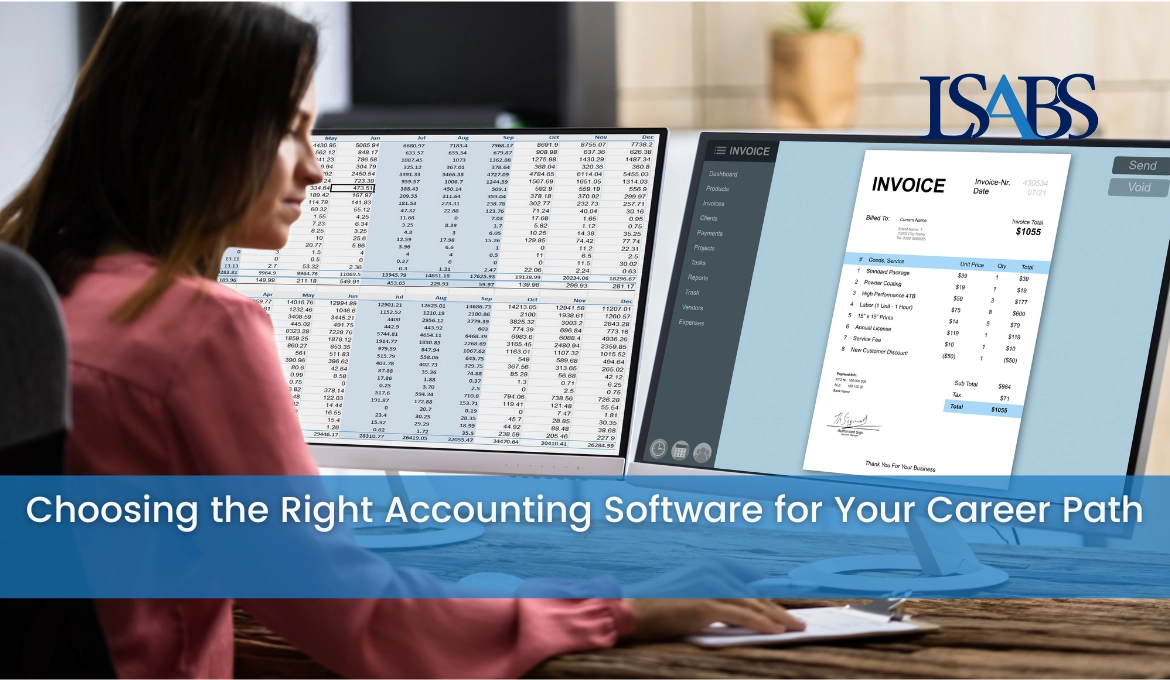Mon-Sat, 8.00-18.00. Sunday CLOSED
The Impact of Digital Accounting on Modern Business Practices
Jan 07, 2025
The integration of digital accounting into modern business practices has revolutionised how organisations manage their finances. By leveraging cutting-edge technology, businesses can achieve greater efficiency, accuracy, and strategic insight. From automating routine tasks to enabling real-time data analysis, digital accounting is reshaping financial management and setting new standards for operational excellence. This blog explores the transformative impact of digital accounting on businesses and how it continues to redefine traditional practices.
1. What is Digital Accounting?
Digital accounting refers to the use of advanced software and technology to perform financial tasks such as bookkeeping, reporting, and auditing. Unlike traditional methods that rely on manual entries, digital accounting offers:
- Automation of repetitive tasks like payroll and invoicing.
- Cloud-based platforms for real-time access and collaboration.
- Data analytics to extract valuable insights for decision-making.
This evolution in accounting has empowered businesses to streamline their operations and adapt to the fast-paced digital economy.
2. Transforming Modern Business Practices
The impact of digital accounting extends beyond the finance department, influencing the entire organisational structure. Below are some of the most significant ways it is reshaping modern business practices:
2.1 Enhanced Efficiency
Digital accounting automates time-consuming processes, reducing manual effort and human errors. Tasks like reconciliations, tax calculations, and financial reporting are completed more quickly and accurately. This allows businesses to allocate resources to more strategic activities.
2.2 Real-Time Financial Insights
With cloud-based platforms, businesses can access real-time financial data from anywhere. This enables quicker decision-making, better cash flow management, and the ability to respond to market changes promptly.
2.3 Improved Collaboration
Digital tools facilitate seamless collaboration among teams and stakeholders. For example:
- Accountants can share updated financial reports with management in real time.
- Auditors can access records remotely, streamlining compliance checks.
2.4 Better Scalability
As businesses grow, their financial needs become more complex. Digital accounting solutions can scale effortlessly, accommodating increased transaction volumes and more intricate financial structures without significant additional costs.
2.5 Strengthened Compliance
Digital accounting software is often updated automatically to reflect the latest regulatory changes. This reduces the risk of non-compliance and ensures businesses meet tax and reporting obligations on time.
3. Benefits of Digital Accounting for Businesses
The adoption of digital accounting offers numerous advantages that help businesses stay competitive in today’s market:
3.1 Cost Savings
By automating routine tasks and minimising errors, digital accounting reduces operational costs. Businesses can save on labour and administrative expenses while maintaining high-quality financial records.
3.2 Strategic Decision-Making
Advanced data analytics tools integrated into digital accounting systems provide actionable insights. Businesses can identify trends, forecast future performance, and develop effective strategies for growth.
3.3 Increased Transparency
Digital accounting provides a clear and organised view of financial data, enhancing transparency. This builds trust among stakeholders, including investors, clients, and regulatory bodies.
3.4 Enhanced Security
Cloud-based digital accounting solutions come with robust security features such as encryption, access controls, and regular backups. These measures protect sensitive financial data from unauthorised access and cyber threats.
3.5 Global Reach
For businesses operating in multiple regions, digital accounting simplifies currency conversions, tax compliance, and financial reporting, enabling seamless global operations.
4. Overcoming Challenges in Adopting Digital Accounting
Despite its benefits, transitioning to digital accounting can present challenges, particularly for businesses that rely on traditional methods. Common obstacles include:
4.1 High Initial Costs
Investing in digital accounting software, infrastructure, and training can be expensive. However, the long-term cost savings and efficiency gains outweigh the initial expenditure.
4.2 Resistance to Change
Employees accustomed to manual processes may resist adopting digital tools. To overcome this, businesses should provide comprehensive training and emphasise the benefits of digital accounting.
4.3 Integration Issues
Incorporating digital accounting systems into existing workflows can be complex. Choosing compatible software and seeking expert guidance can ensure a smooth transition.
4.4 Data Security Concerns
Storing financial data digitally raises concerns about cybersecurity. Businesses must implement robust security measures and work with trusted software providers to safeguard information.
5. The Future of Digital Accounting in Business
The role of digital accounting in modern business practices will continue to evolve as technology advances. Key trends shaping its future include:
5.1 Artificial Intelligence (AI) Integration
AI-powered tools will automate more complex processes, such as fraud detection and financial forecasting, further enhancing efficiency and accuracy.
5.2 Blockchain Technology
Blockchain’s transparency and security features will revolutionise auditing and financial reporting, making transactions tamper-proof and easier to verify.
5.3 Personalised Solutions
Customisable digital accounting platforms will cater to specific business needs, improving user experience and operational effectiveness.
5.4 Focus on Sustainability
Digital accounting can help businesses track and report their environmental, social, and governance (ESG) performance, aligning financial goals with sustainability objectives.
5.5 Remote Collaboration
With remote work becoming more common, digital accounting tools will continue to support seamless collaboration across geographically dispersed teams.
Conclusion: Embracing Digital Accounting for Business Success
Digital accounting is no longer a luxury but a necessity for businesses aiming to thrive in today’s competitive environment. By streamlining operations, enhancing decision-making, and ensuring compliance, it sets the foundation for long-term success.
While challenges exist, the benefits of digital accounting far outweigh the hurdles, making it an indispensable tool for modern businesses. As technology evolves, organisations that embrace digital transformation will gain a significant edge, driving innovation and achieving sustainable growth.
The future of business lies in digital accounting—start the journey today to stay ahead of the curve.




